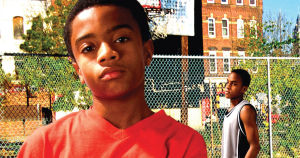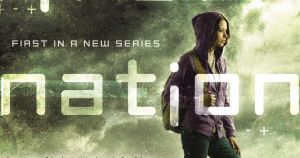
Review: Kinda Like Brothers by Coe Booth
Kinda Like Brothers is a pacey, touching look at foster care from an adolescent perspective, featuring an accurate and relatable look at asthma.

Kinda Like Brothers is a pacey, touching look at foster care from an adolescent perspective, featuring an accurate and relatable look at asthma.

Everything, Everything starts out as a respectful, sensitive narrative with incredibly likable characters, but ends on a shockingly disappointing note in terms of disability representation.

Heidi Heilig and S. Jae-Jones sit down to talk about the book’s portrayal of bipolar disorder, writing mental illness, and writing with a mental illness.
Diversity in children’s literature is often represented as an either/or, without intersectionality; characters can either be autistic or gay, for example, or a wheelchair user or Black, but rarely both. Why is that?

You Look Different in Real Life is a contemporary YA novel in which the broken friendship between the protagonist and her autistic best friend plays a central role–a thoughtfully handled plot thread that we were eager to talk to author Jennifer Castle about.

April Henry’s main character in Girl, Stolen is a well-researched, well-written example of blindness, and we were thrilled to discuss the book with her.

The description for this book uses the phrase “brilliant but autistic” to describe its main character, and that’s where our conflicted feelings about Viral Nation start.
We’ve decided to continue Disability in Kidlit as an ongoing blog rather than a one-time event!

Although the book was fun and interesting in places, the disability aspect was very much a freak-show presentation of disability and the disabled experience.

If you looked at me as a teenager, particularly during my freshman year in high school, I would not have stood out from my peers. If you looked closer at my dominant right hand, though, you’d see there was a significant problem.